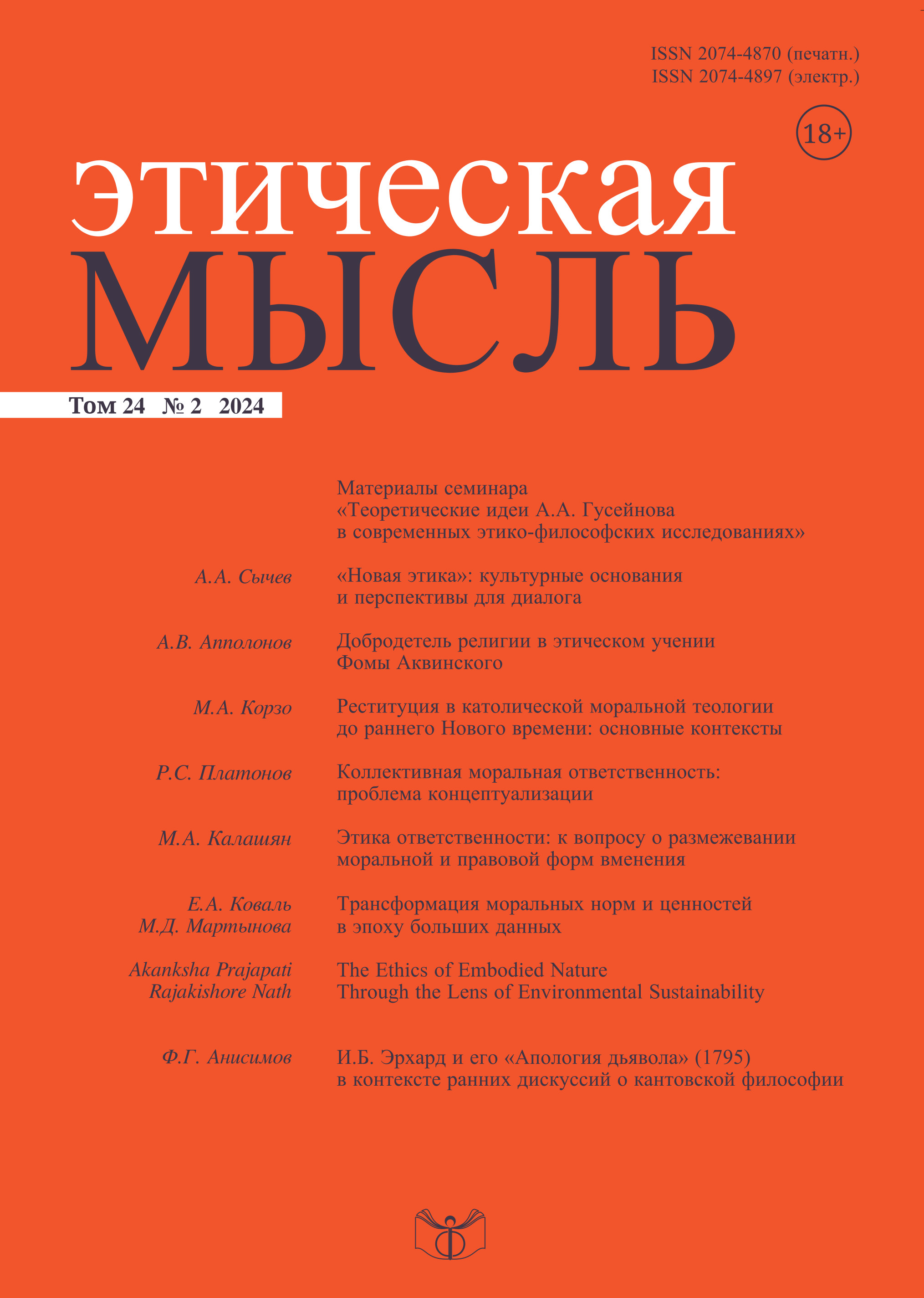“New Ethics”: Cultural Foundations and Prospects for Dialogue
DOI:
https://doi.org/10.21146/2074-4870-2024-24-2-19-33Keywords:
new ethics, therapeutic culture, consent culture, cancel culture, culture wars, victim, individual identity, social identity, moral identity, dialogueAbstract
The article examines the concept of “new ethics,” understood as a process of revising moral guidelines, characterized by an increased sensitivity to manifestations of violence and growing intolerance towards its perpetrators. The purpose of the article is to analyze the sociocultural foundations of the “new ethics” and explore the prospects for resolving conflicts about value guidelines for societal development. The discussions surrounding the “new ethics” are analyzed, and its subject field is outlined. It is shown that its prerequisites, goals, and means can be understood in the context of phenomena such as “therapeutic culture,” “culture of consent,” and “cancel culture”. The article hypothesizes that the “new ethics” represents a modern stage in the struggle to define identity, with the victim’s figure occupying a central position. The development of network communication has enabled representatives of discriminated groups to find like-minded individuals and become a real power to be reckoned with by those who fear reputational losses. However, it has also led to the degradation of the public sphere, provoking societal division into two conflicting parties unable to reach an agreement. Proponents of the “new ethics” advocate for the individual’s right to construct an identity and freedom from external interference in this process. In contrast, defenders of traditional morality uphold an understanding of identity as belonging to a group that defines a system of rights and responsibilities. Each side of the conflict defends its own – individualistic or collectivist – understanding of morality. The author, based on the position that morality is the coordination of private and public interests, concludes that both opposing sides replace morality with their ideological constructs. To designate a system of value priorities aimed at resolving conflicts between individual and collective interpretations of identity, the concept of “moral identity” is proposed. Analyzing the structure and principles of constructing such a dialogue-oriented identity is considered an important task for ethics at the present stage of its development.









